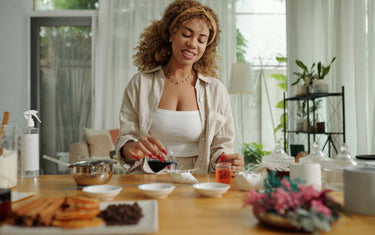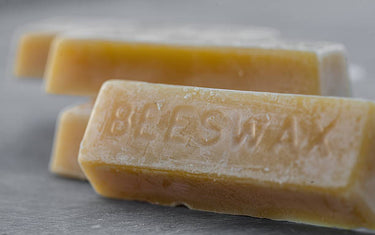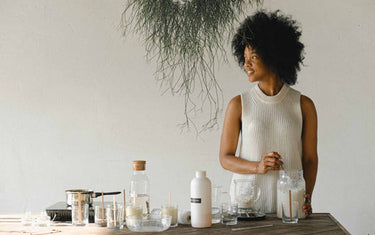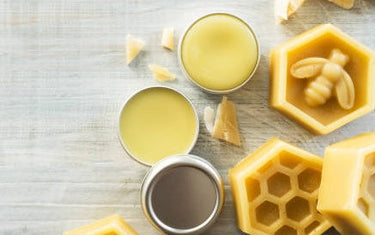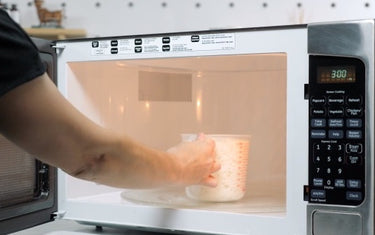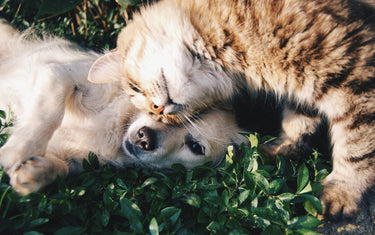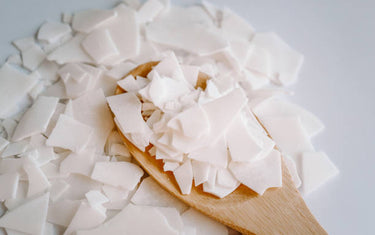5 min read / 27 February 2024 / yasmin sharp
How to Make a Natural Deodorant Using Essential Oils
Discover how to create your own natural deodorant with essential oils, offering a chemical-free way to stay fresh.
Share this post

We all want to smell nice and avoid unpleasant body odours and, on most days, the first scent we put onto our bodies is from a deodorant.
But not everyone is comfortable using a commercial deodorant or antiperspirant, as they are usually made from a batch of chemicals that we know very little about.
This explains why a growing number of people are turning to homemade, natural deodorants made with essential oils, which still keep your body smelling fresh without any chemical enhancement.
If you’re interested in finding out more, we’ve put together a fantastic essential oil deodorant recipe that is affordable and easy to make, all without making any changes to your daily routine.
What are the benefits of using an essential oil deodorant?Before you get started with our essential oil deodorant recipe, here’s an overview of some of the benefits you can enjoy by making the switch from commercial products: 1. Natural deodorants allow you to sweatNobody likes to sweat, but it’s easy to forget that it’s a natural reaction generated by your body as it attempts to cool you down when your temperature is too high. Once sweat leaves your skin through your pores, it evaporates which makes you feel cooler. Using an essential oil deodorant allows you to sweat and cool down whilst also helping to eliminate unwanted body odours. 2. Your body odour is naturally blockedThere are two types of sweat glands in your body: apocrine glands, which secrete fluid and are present in areas of the body that have more hair (your armpits, for example) and eccrine glands, which bring fluid to the surface of your skin. Body odour only occurs when the bacterium on your skin comes into contact with the fluid secreted by the apocrine glands. An essential oil deodorant won’t stop you from sweating, but the natural properties can help to neutralise the odour. For example, tea tree oil can work as an antibacterial agent, which can cover up bad odours, whilst minimising bacteria on your skin. [1] 3. Artificial ingredients are a thing of the pastBy applying an essential oil deodorant, you are ensuring that no artificial preservatives or fragrances are coming into contact with your skin. This is especially true if you are a user of spray-on deodorants, which can contain harmful chemicals like aluminium, propylene glycol, triclosan, parabens and phthalate. You can have more confidence in your skincare products without having any worries about the potential long-term health effects the deodorant could cause. 4. Your skin will love you for itStudies have found that deodorants are a major cause of fragrance-based allergic skin rashes, with researchers concluding that “deodorants have an ‘unhealthy’ composition of the fragrance chemicals present in FM II.” [2] Skin can be particularly sensitive when hair has been removed by shaving, but using plant-based and natural ingredients can make it easier to apply deodorant to cover up any body odours that may occur during the day. 5. Natural deodorants are good for the environmentThe lack of harsh chemicals contained in natural deodorants is not only good news for you, but also the environment. It is a more sustainable option that involves less manufacturing, and it also means that moving away from a spray-on deodorant is helpful to the o-zone. An essential oil deodorant recipe only requires you to use a handful of ingredients that are all 100% natural, so it will align with your green values and beliefs. |
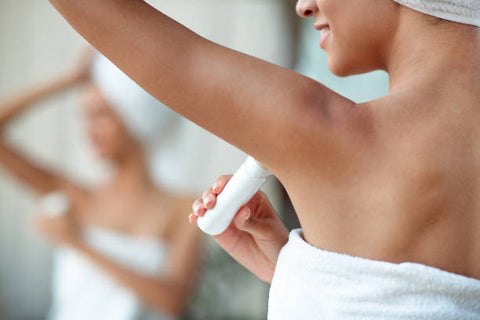
Essential oil deodorant recipe: How to make your own natural deodorant
Some essential oils have natural deodorising properties, which can help to mask odours on our body, or even around the home.
For example geranium creates a beautiful fresh, floral scent that is hard not to love.
We’ve included it in our essential oils deodorant recipe which is simple and affordable to make, with its all-natural ingredients helping to keep you smelling fresh throughout the day.
How to make an essential oil deodorant
Before you get started, check that you have the following:
- 120ml milk of magnesia
- 2 tablespoons of grapeseed oil
- 15 drops of Geranium Essential Oil
You will also need:
- A spray bottle
- A measuring jug
Method
1. Mix the grapeseed oil and geranium inside a measuring jug.
2. Add the milk of magnesia and mix well.
3. Carefully pour the mixture into a spray bottle and secure the lid. Give the bottle a few good shakes to help the mixture to settle.
How to use your essential oil deodorant
Once you have completed the essential oil deodorant recipe, follow the steps below:
- Wash under the arms and pat dry.
- Spray twice under each arm.
- Allow 30 seconds to dry before getting dressed.
- Repeat throughout the day as needed.
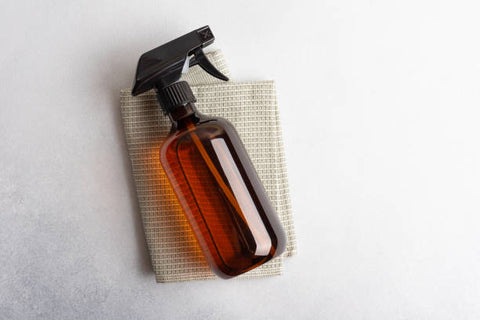
Why use milk of magnesia in the essential oil deodorant recipe?
Milk of magnesia acts as the perfect natural base for our essential oil deodorant.
It is made of magnesium hydroxide suspended in water and it has natural antimicrobial and antibacterial properties that, once applied, can help to inhibit the growth of bacteria under the arms and prevent the release of unpleasant body odour. [3]
Why use grapeseed oil?
Before applying any essential oil to the skin it should always be diluted with a carrier oil, even when other ingredients are present.
Milk of magnesia is water based, which means oils will not fully mix with it, so the inclusion of grapeseed oil ensures the essential oils can be ‘carried’ onto the skin.
Grapeseed oil has a natural scent that won’t interfere with the deodorant’s scent, and because it easily absorbs into skin, which ensures the scent will be released when the body perspires.
In addition, grapeseed oil is packed with fatty acids and vitamins that can be beneficial for skin, in particular vitamin E, with one tablespoon providing as much as 3.9 mg of vitamin E, which meets current daily recommended intake guidelines. [4]
Why use geranium essential oil?
Geranium essential oil has a wonderful floral scent that can help to mask unpleasant body odours.
It’s also a natural circulatory oil, so it absorbs into the skin and bloodstream without any issue.
Once the body starts to release perspiration, the flowery scent will slowly be released to cover up any unwanted smells.
Research has also found that geranium essential oil contains antimicrobial properties, making it ideal for use in a natural deodorant. [5]

If you are thinking of making the move away from chemical-based deodorants, then you could use our essential oil deodorant recipe as a start point.
There are lots of other ingredients and methods you can try, so if the mixture isn’t quite right for you, it’s easy to find an alternative.
Not only could it be better for your skin, but switching to a natural deodorant helps the environment, whilst keeping unwanted body odours at bay.
[1] C. F. Carson et al. (2006) Melaleuca alternifolia (Tea Tree) Oil: a Review of Antimicrobial and Other Medicinal Properties https://www.ncbi.nlm.nih.gov/pmc/articles/PMC1360273/
[2] Maria V. Heisterberg et al. (2011) Deodorants are the leading cause of allergic contact dermatitis to fragrance ingredients https://onlinelibrary.wiley.com/doi/abs/10.1111/j.1600-0536.2011.01889.x
[3] Keren Demishtein et al. (2019) Antimicrobial Properties of Magnesium Open Opportunities to Develop Healthier Food https://www.ncbi.nlm.nih.gov/pmc/articles/PMC6835631/
[4] Vitamin E-Vitamins and minerals NHS https://www.nhs.uk/conditions/vitamins-and-minerals/vitamin-e/
[5] Mohamed Nadjib Boukhatem et al. (2013) Rose geranium essential oil as a source of new and safe anti-inflammatory drugs https://www.ncbi.nlm.nih.gov/pmc/articles/PMC3793238/
[6] Badra Barhouchi et al. (2023) Compounds from myrtle flowers as antibacterial agents and SARS-CoV-2 inhibitors: In-vitro and molecular docking studies https://www.sciencedirect.com/science/article/pii/S187853522300401X
[7] Rosa Donato et al. (2019) Antifungal activity of different essential oils against Malassezia pathogenic species https://pubmed.ncbi.nlm.nih.gov/31704415/



